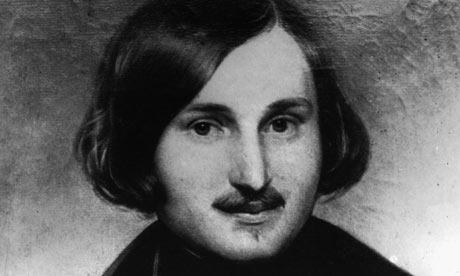
News that the Ukrainians are claiming the great 19th century writer Nikolai Gogol as their own because he was born and bred in their territory has been reported with evident amusement – not least because it has so irritated Russian spokespersons. Yet is it so foolish? Nations care very much about the esteem in which they are held by other nations, and a literary pantheon confers more prestige than any Olympic medal table. "The chief glory of every people arises from its authors," wrote Dr Johnson, and he is right. If the Ukrainians could snaffle Gogol it would do more for their national pride than Andrei Shevcenko could ever manage.
Look at the Irish, who have proved particularly skilful at this. They have effortlessly reclaimed all the great authors who fled the country of their birth – Goldsmith, Joyce, Beckett – even though the latter wrote some of his greatest work in French, the language of his adopted country. They have managed to persuade many that Laurence Sterne (born in Ireland because his father was a British soldier stationed there) and William Congreve (born in Yorkshire, but educated partly in Ireland because his father was another British officer) were really Irish. (The fact that both these writers were witty somehow confirms their essential Irishness.) And, their biggest triumph, they have taken possession of Jonathan Swift, perhaps the greatest of all satirists. In fact Swift called himself "English", spoke of his residence in Dublin as an "exile" in "a land I hate", and did not even have an Irish accent. But he has long become a great Irish patriot, adorning banknotes and tourist brochures.
It is easier to appropriate writers, of course, if, unlike Swift, they seem to co-operate. TS Eliot, after tennis player Jimmy Connors the most famous person to come out of St Louis, Missouri, did not just become a British citizen, he also embraced Englishness. The Waste Land has forgotten the USA, but plots the streets and buildings of London (with an outing to Margate). The Four Quartets meditates on how "History is now and England". Similarly, Sylvia Plath may have lived more than half of her short life in the US, but the localities of her published poems are all English. So we have taken her over.
Soon these questions about literary nationality are going to be thorny ones for exam boards. A foolish-seeming new directive from the Qualifications and Curriculum Authority decrees that GCSE candidates in English Literature (sic) in the separate countries of the UK must study an author from the country where they are taking the exam. Welsh schoolchildren must study a Welsh author writing in English (though why it will be better for them to do Dylan Thomas than Philip Larkin is unclear). This sop to literary nationalism will create plenty of potential Gogol-debates.
What about Muriel Spark, for instance? Born and educated in Edinburgh, she lived in Africa, became a writer only when she moved to London, and spent the latter half of her life in Italy. A great novelist, but whose team is she on? Will Northern Ireland be allowed to pad out their list with Louis MacNeice, born in Belfast though sent off to an English public school and thereafter a resident in England? Or Seamus Heaney, who is now a citizen of the Republic but hails from Ulster? What fun cultural bigots will soon be having.
Gogol, of course, wrote in Russian, slightly impeding Ukrainian attempts to purloin him. The dominance of the English language has meant that Eng Lit (until the QCA came along) has always been in inclusive in spirit. The English can afford to be relaxed. We may be short of composers, and in some centuries thin on painters, but we have whole teams of top-class writers. We need not lose sleep over WH Auden liking to think that he was really American (he even developed a ropey American accent). Though, on second thoughts, can we have Swift back please?

